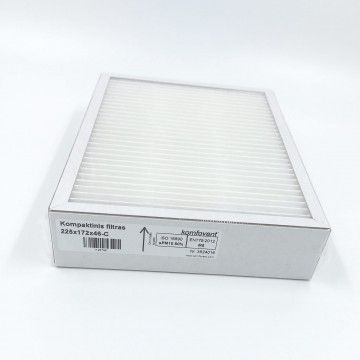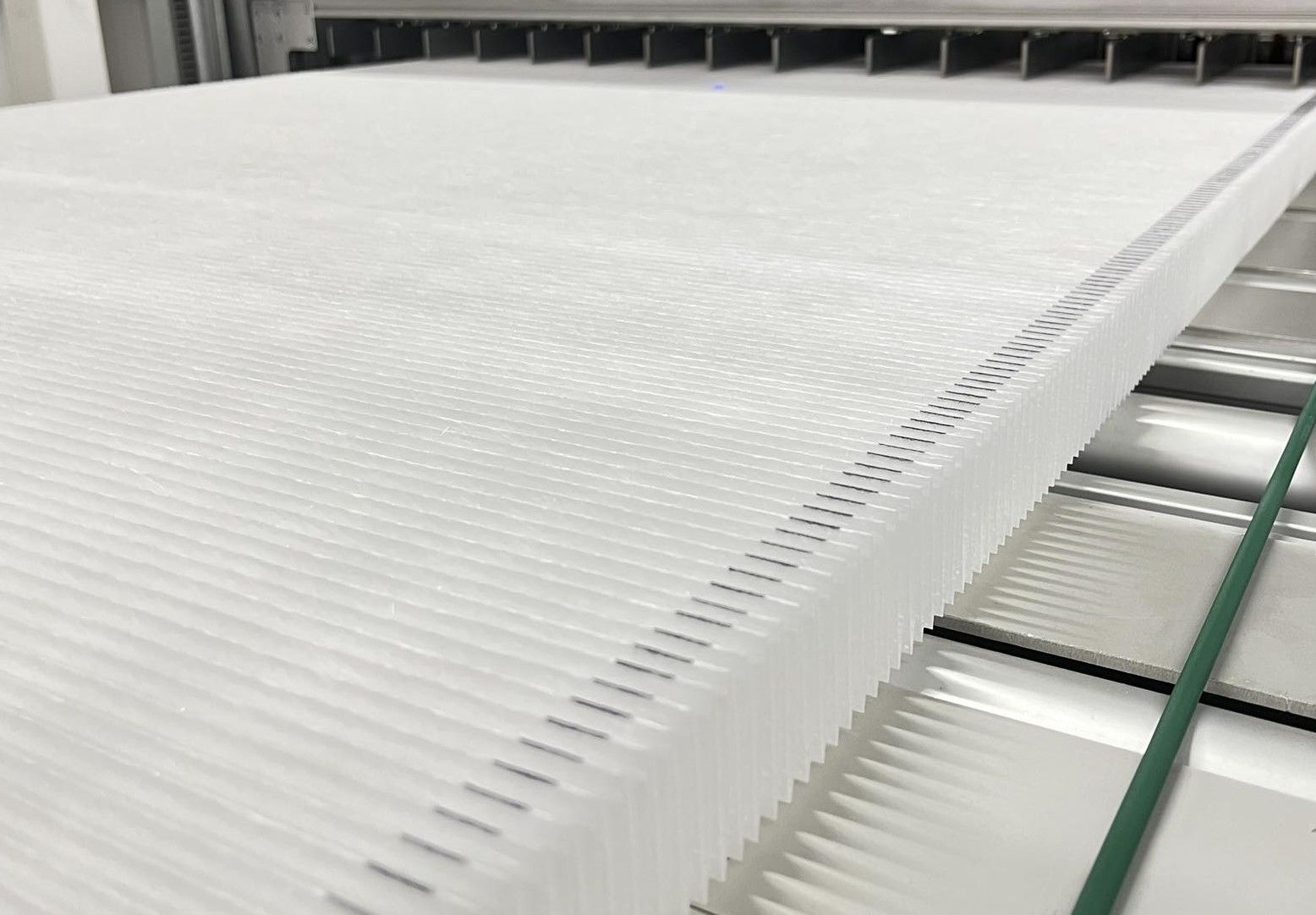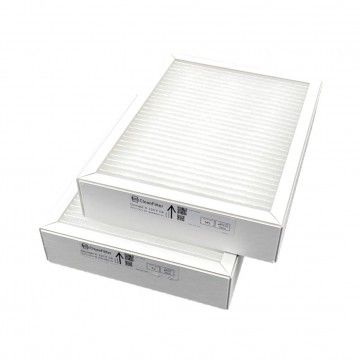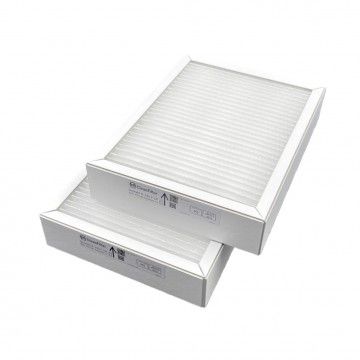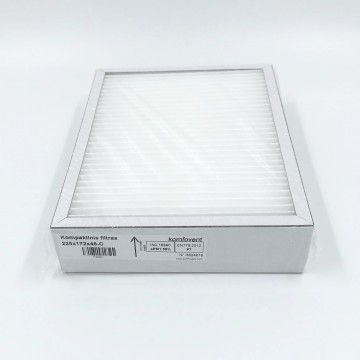Domekt R 150 F C8 M5 Original filter
Reference: 1128798
£12.00
delivery in 5-7 working days
Ex VAT: £10.00
| Filter dimensions | 225x172x46 |
| Class EN779 | M5 |
| Class ISO16890 | ePM10 50% |
| Protection level | Average: medium-sized solid particles, dust, fluff, pollen, mold spores. |
| Quantity of filters | 1 |
| Advantages | check Genuine (original) filter. check Low airflow resistance: longer servicing term, lower energy consumption. check Made in the EU. check Premium class certified synthetic filtering material (SANDLER AG, Germany) |

1128798
Data sheet
- Manufacturer of MVHR
- Komfovent
- Manufacturer
- Original
- Model
- Domekt R
- Model size
- 150
- Air handling unit
- Domekt R 150 F C8
- Filter dimensions
- 225x172x46
- Class EN779
- M5
- Class ISO16890
- ePM10 50%
- Protection level
- Average: medium-sized solid particles, dust, fluff, pollen, mold spores.
- Quantity of filters
- 1
- Advantages
- Genuine (original) filter.
Low airflow resistance: longer servicing term, lower energy consumption.
Made in the EU.
Premium class certified synthetic filtering material (SANDLER AG, Germany) - Manufacturer product number
- 1128798
- Google category ID
- 3573
- Product type
- Filters for Air Handling Units

